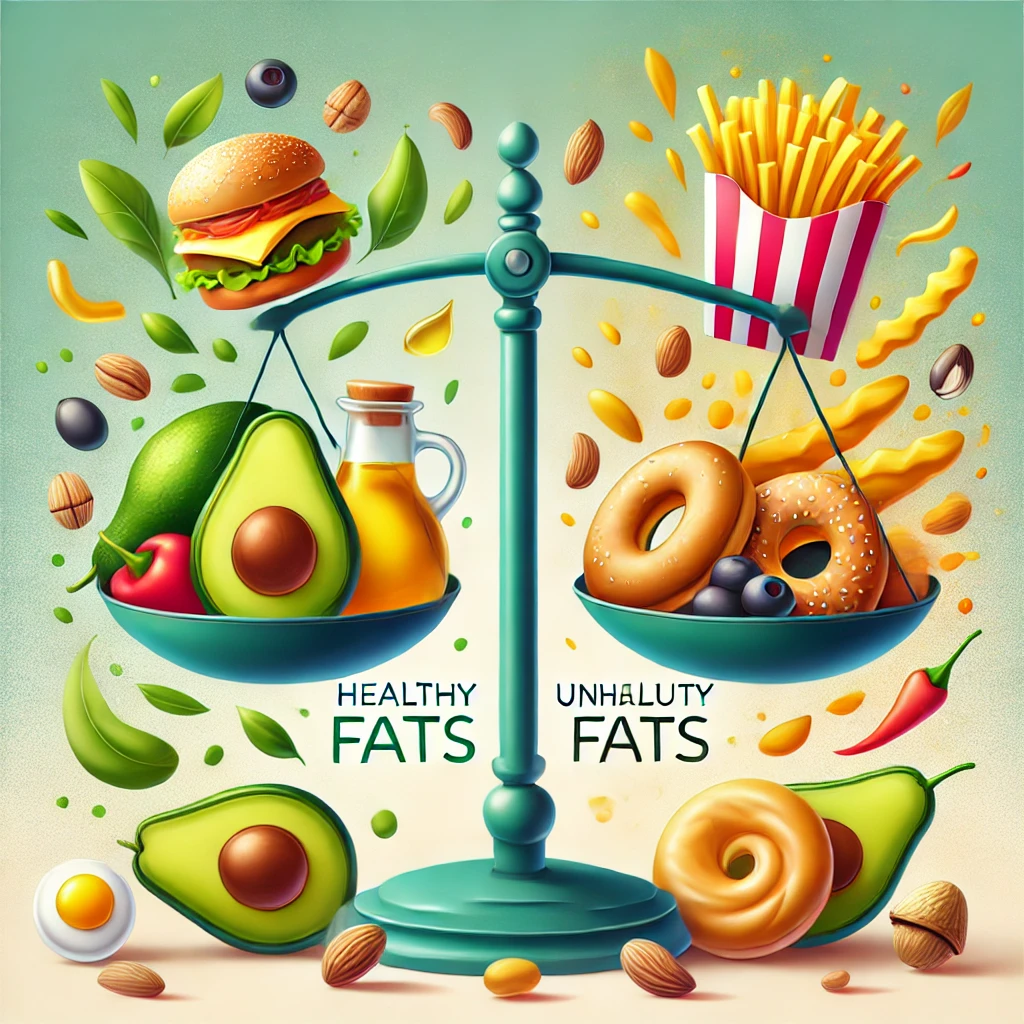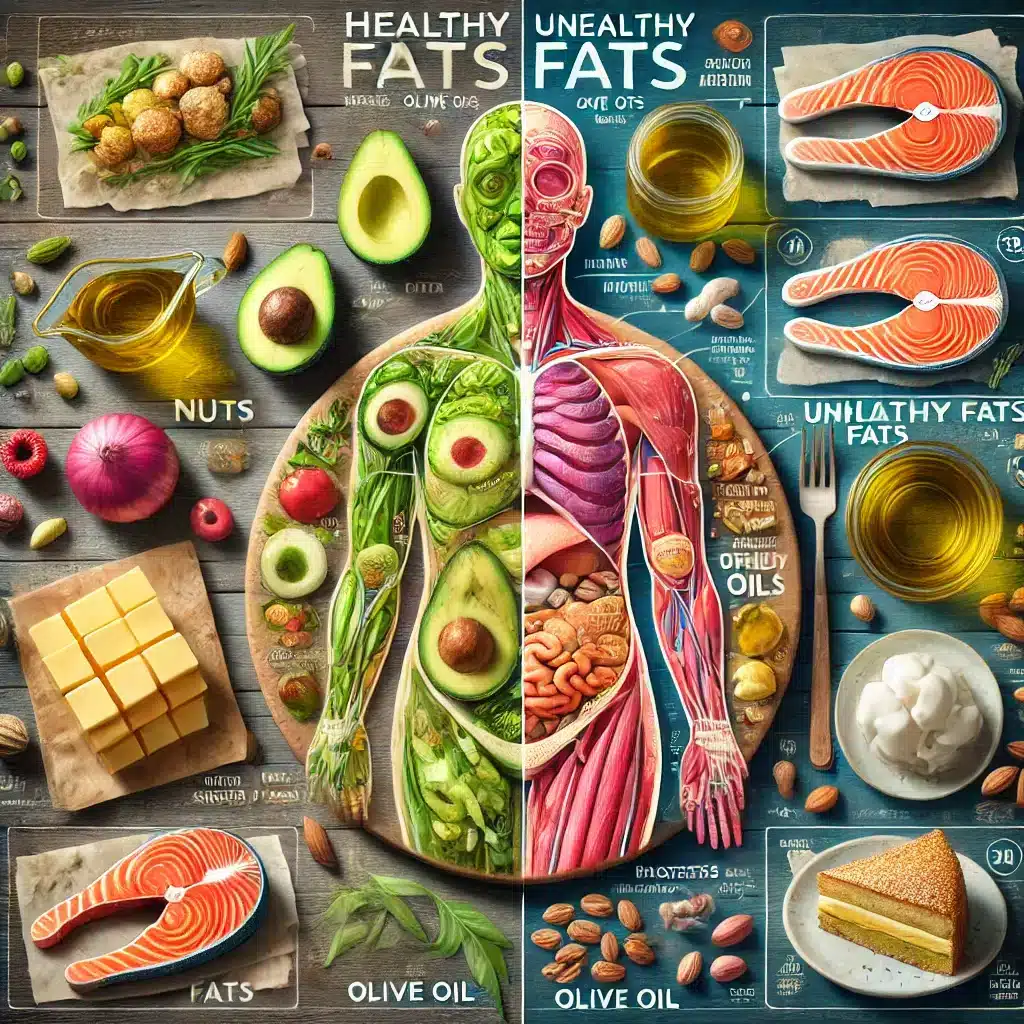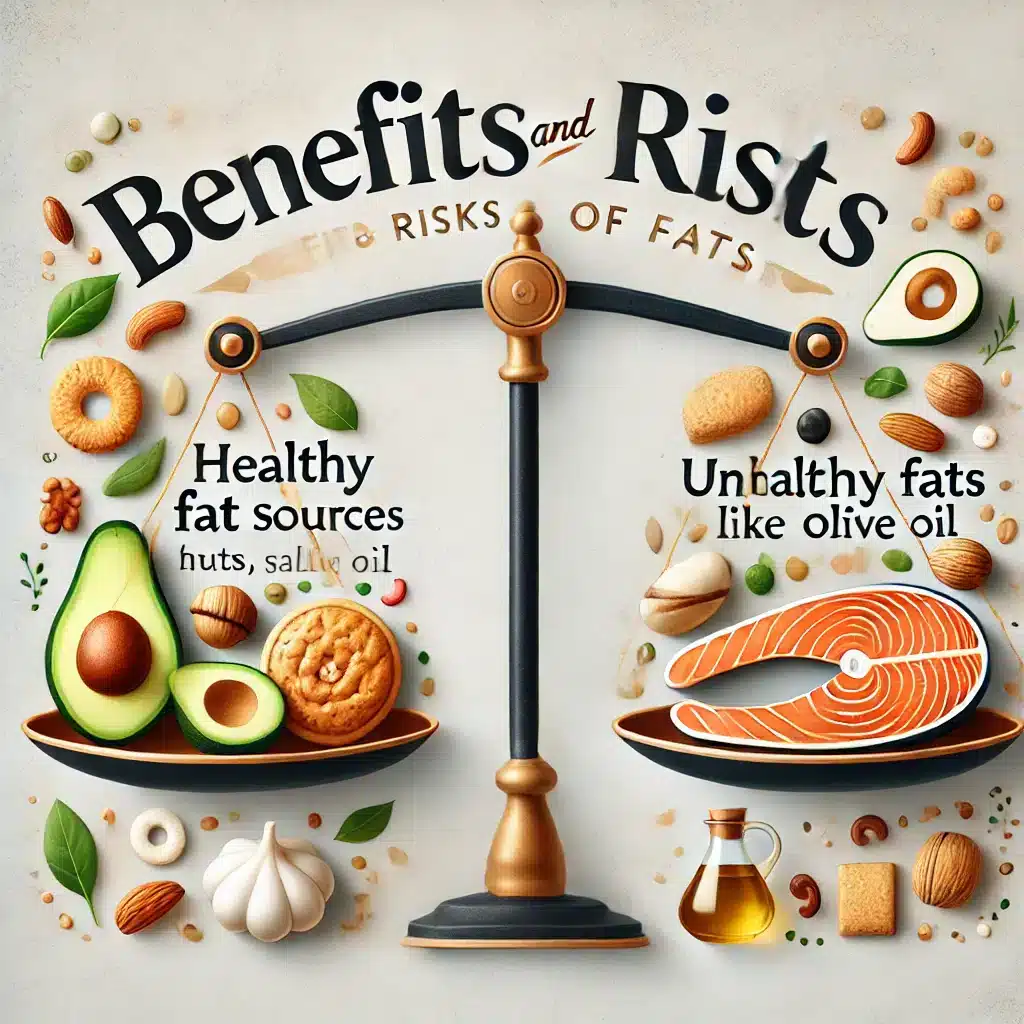
What is fat?
Fats: Benefits, Drawbacks, and a Guide to Choosing Healthy Fats
Fats are one of the essential macronutrients for the human body and play a key role in maintaining health. While excessive or improper consumption of fats can lead to health issues, neglecting the body’s need for this nutrient can also result in serious deficiencies. In this article, we will thoroughly explore the benefits and drawbacks of fats and introduce important sources of both healthy and unhealthy fats.
Role and Benefits of Fats in the Body
Fats have numerous benefits for the body and perform the following vital functions:
1. Energy source
Fats are one of the primary energy sources for the body. Each gram of fat provides approximately 9 calories of energy, which is nearly twice that of protein and carbohydrates. This characteristic makes fats an efficient source for long-term energy supply.
2. Vitamin absorption
Some essential vitamins, such as vitamins A, D, E, and K, are fat-soluble. Without fat, the body would be unable to absorb these vitamins.
3. Cellular structure
Fats play an important role in the structure and function of cell membranes. Phospholipids, a type of fat, help maintain the integrity of cells.
4. Protection of organs
Stored fats in the body act as a protective layer, safeguarding internal organs from damage. Additionally, fats provide thermal insulation for the body.
5. Hormone regulation
Fats play a role in the production of hormones such as estrogen, testosterone, and cortisol, which are essential for the proper functioning of the body.
6. Skin and hair health
Fats help retain moisture in the skin and add shine to the hair. They also assist in improving the function of sebaceous glands.
The harms of excessive or unhealthy fat consumption
While fats are essential for the body, improper or excessive consumption can lead to problems:
1. Obesity and weight gain
Fats are high in calories, and excessive consumption can lead to weight gain and obesity. This condition is associated with various diseases, such as type 2 diabetes and cardiovascular diseases.
2. Increased bad cholesterol (LDL)
Saturated and trans fats can raise the levels of bad cholesterol (LDL) in the blood, increasing the risk of cardiovascular diseases.
3. Heart diseases
Consumption of unhealthy fats can lead to the formation of fat plaques in blood vessels, which can result in atherosclerosis, heart attacks, and strokes.
4. Increased risk of certain cancers
Some studies have shown that excessive consumption of unhealthy fats is linked to an increased risk of cancers such as colon and breast cancer.
Types of fats and their sources
Fats are generally classified into two categories: healthy and unhealthy fats. The table below lists key sources of each category:
| Type of Fat | Healthy Sources | Unhealthy Sources |
|---|---|---|
| Unsaturated Fats | Olive oil, canola oil, avocado, nuts | – |
| Saturated Fats | Low-fat dairy products, lean meats | Butter, cream, full-fat cheese |
| Trans Fats | – | Fried foods, margarine, baked goods |
| Omega-3 | Fatty fish (salmon, tuna), walnuts | – |
| Omega-6 | Corn oil, soybean oil | – |
Important tips for selecting and consuming fats:
- Balanced consumption: Your daily fat intake should make up between 20% and 35% of your total caloric intake.
- Choose healthy fats: Include unsaturated fats and omega-3s in your diet.
- Reduce saturated fat intake: Limit the consumption of saturated fats to less than 10% of your daily calories.
- Avoid trans fats: Refrain from consuming processed, fried foods, and those containing trans fats.
- Cook healthily: Use healthier methods like steaming or grilling instead of frying.
The impact of choosing the right fats on health:
Proper fat consumption not only helps with weight loss and increased energy but also plays a key role in improving brain function, heart health, and hormone regulation. Additionally, choosing healthy fats can reduce the risk of chronic diseases such as diabetes and cancer.
Conclusion
Fats are an essential part of a healthy diet. However, the type and amount of fat consumed are of great importance. By including sources of healthy fats in your diet and avoiding unhealthy fats, you can help maintain your health and prevent fat-related diseases. Paying attention to smart fat choices will not only impact your individual health but also positively affect your overall quality of life.
Founder of Pelank Platform (6+ years) | Founder & Manager of Galaxy Gym (11+ years) | M.Sc. Student in Exercise Physiology & Nutrition | Certified Fitness & Conditioning Coach | Official Member of the Bodybuilding & Physical Fitness Federation


